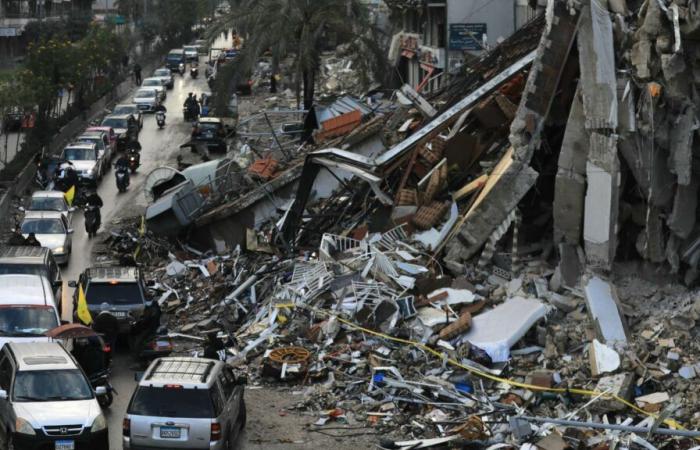Entering into force on the night of Tuesday November 26 to Wednesday November 27, the ceasefire agreement between the two parties provides in particular for the withdrawal of Hezbollah forces and the Israeli army from southern Lebanon.
The weapons fell silent. At 4 a.m. local time (3 a.m. French time), a ceasefire between Hezbollah and Israel came into effect, marking the culmination of long weeks of negotiations to reach an agreement after more than a year of a conflict between Hezbollah and Israel which has turned into open war since September and left several thousand dead in Lebanon. However, the contours of this ceasefire remain unclear on certain points.
• A “long-term” ceasefire
As Emmanuel Macron indicated in a message on Tuesday, the ceasefire agreement concluded follows in the wake of resolution 1701 adopted in 2006 by the UN Security Council to end the previous conflict between Hezbollah and Israel. This text called for a “total cessation of hostilities” as well as an “immediate cessation” of Hezbollah’s “attacks” and Israel’s “military offensives”.
“It is important that this ceasefire be respected, that it be respected over the long term, in order to restore the security of the Lebanese and the security of the Israelis,” underlined the President of the Republic, without giving further details.
For his part, Joe Biden affirmed that the ceasefire is supposed to be “permanent” while Prime Minister Benjamin Netanyahu said that the duration of the ceasefire will depend “on what happens in Lebanon” .
• A gradual withdrawal of troops over 60 days
With this agreement, the only certainty of the timetable concerns the next two months, provided of course that both parties respect the ceasefire.
According to Joe Biden, “in the next 60 days, the Lebanese army and security forces will deploy and take control of their own territory.”
During the same period, “Israel will gradually withdraw its remaining troops” in Lebanon in order to allow hundreds of thousands of displaced people to return to their homes.
According to an American source cited by the BBC, the Lebanese army should deploy some 5,000 men in southern Lebanon while the number of peacekeepers from UNIFIL, the United Nations Interim Force in Lebanon, must be increased.
Hezbollah, for its part, undertakes to withdraw its fighters and all its weapons from the area between the “blue line”, the border between Israel and Lebanon drawn by the UN in 2000, and the Litani River, located around thirty kilometers further north.
• Israel intends to maintain “total freedom of action”
Will Israel and Hezbollah really go through the monitoring committee set up to assert their rights in the event of adverse aggression? It is permissible to be skeptical, especially after Benjamin Netanyahu's statements. On Tuesday, the Israeli Prime Minister insisted that the Jewish state retained “total freedom of action” in Lebanon.
And to list the cases where the Jewish state reserved the right to retaliate: “If Hezbollah violates the agreement and tries to arm itself, we will attack. If it tries to rebuild terrorist infrastructure near the border, We will attack. If he launches a rocket, if he digs a tunnel, if he brings a truck carrying rockets, we will attack,” he said.
Hezbollah, which did not participate directly in the truce negotiations and preferred to call on the head of Parliament, Nabih Berri, to negotiate on its behalf, has not yet commented on the ceasefire agreement. .
• Paris and Washington, first guarantors of the agreement
Involved at the forefront in the conclusion of a ceasefire, the Americans and French must also play a major role in ensuring compliance with this agreement. Emmanuel Macron thus assured that Paris “will not spare its efforts to support its implementation” and that it will do so “with the United Nations Interim Force in Lebanon, within which (France plays) a central role.
Concretely, France and the United States will join the tripartite mechanism existing since the 2006 war and including UNIFIL, Lebanon and Israel. This new monitoring committee, under American presidency, aims to maintain a link between the different parties and to deal with any serious violation that may be observed in order to avoid the slightest escalation.
Joe Biden, however, made it clear: the United States has no plans to deploy American troops in southern Lebanon. “It is consistent with my commitment to the American people not to send troops to fight in this conflict,” he explained. According to the American source requested by the BBC, the United States will provide military support to the Lebanese armed forces, “as they did in the past”. “This will normally be done (…) in collaboration with the French army,” the official said.






